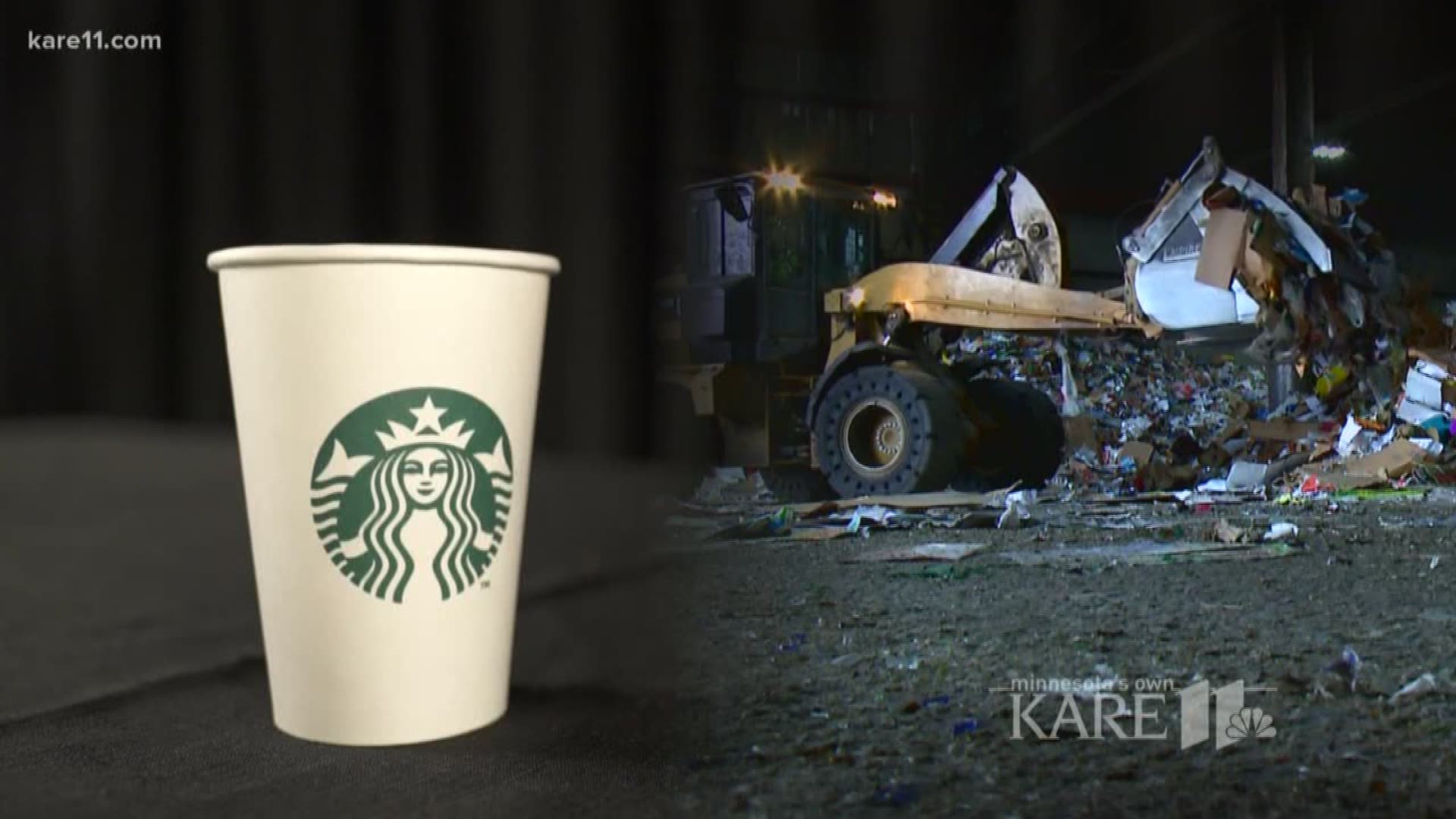MINNEAPOLIS -- It's a question many of you have probably asked when you're about to toss that Starbucks coffee cup - can you recycle it?
KARE 11 viewer Elaine asked us that very question, saying she heard the cups will "gum up the works." She also asked if the heat wrap and lid could be recycled.
So, we set out to find out...and learned some interesting things along the way.
Our VERIFY source is Lynn Hoffman, co-president of Eureka Recycling based in Minneapolis. She knows her stuff, or should we say "junk!"
So let's start with the lid. It's a white, No. 5 plastic, which Hoffman verified can be recycled. However, if you run into a black coffee cup lid, she said most recycling programs will not accept it.
"The way that a lot of plastic is sorted is in a piece of equipment called an optical sorter, and it uses a laser technology to identify the type of plastic and that dark dye makes it very hard for the laser to identify it and so it's hard to get that plastic into the right pile," explained Hoffman.
Now let's move on to the cup's sleeve. This is an easy one.
"The sleeve is typically made out of corrugated cardboard so that's very recyclable," Hoffman said.
But where you run into problems is the cup itself. Hoffman told us many recycling programs will not accept it.
It's because most end-markets don't want it due to that plastic lining inside the cup.
"To recycle paper you have to put it all basically into a big blender and make a slurry with water, and that plastic lining on the cup is designed to keep the paper from breaking down in water, so it makes it challenging for that paper to turn into that pulp they need," Hoffman explained.
So Elaine, it may not gum up the system per se, but we can verify many places don't recycle it.
But before you toss it, consider where you bought it. In St. Louis Park, Starbucks cups are not recyclable but they are compostable.
"St. Louis Park has an ordinance that anybody's who's selling food to go, the packaging has to be either recyclable or compostable," Hoffman said.
They make it compostable by using a type of plastic lining made out of plants, not petroleum.

